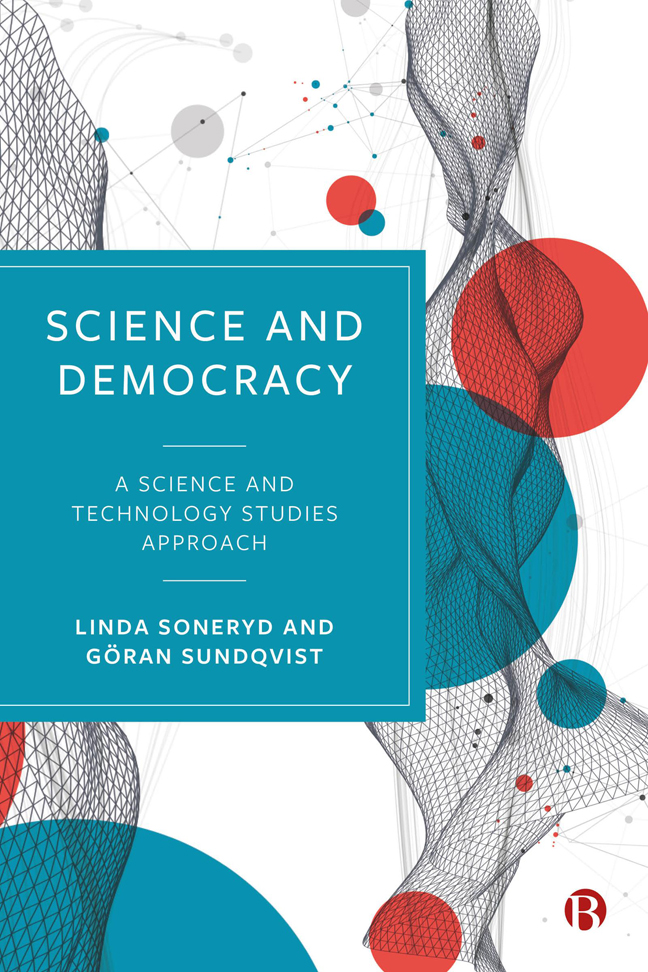5 - Co-production of Scientific Knowledge and Societal Order
Published online by Cambridge University Press: 23 January 2024
Summary
Introduction
This chapter goes deeper into the complex relation between science and democracy. Previous chapters discussed how science and politics are separate and that one elite (scientific experts) is delegated the power to represent nature (as knowledge objects) and another elite (decision makers, not only elected politicians but broadly speaking) is delegated the power to represent the people. This double delegation (delegative democracy) is based on a distinction between what is represented and who can represent. These two forms of representation divide the world into the two domains of knowledge and politics and, in addition, create a sharp division between those who are in power (the two elites) and those who are not (the ignorant mass). However, these separate domains are also interlinked, and as we have seen earlier, the boundaries between them and their authority and legitimacy can always be questioned and change over time. The separation between science and democracy, between representatives and represented, is a joint product. One of the most important ideas within STS research is that knowledge and social order are intertwined or, as it is often expressed, co-produced (Jasanoff 2004b).
Science and democracy are not independent from each other. Democracies legitimize and back up decisions and reforms with expert knowledge, and an uneven distribution of knowledge and education in a society is seen as a democracy problem (Sismondo 2010: 80). Governing requires knowledge, and science is intermingled with power. Science and democracy may be the result of a joint process, but they are often presented as separate, which has consequences for how practices are performed and leads to what they have in common being concealed. Knowledge is understood and presented as being independent of social order and power, especially in the scientific community. Researchers have a professional interest in keeping sharp distinctions between scientific knowledge and other types of knowledge as well as sharp distinctions between scientific knowledge and political interests (Gieryn 1983). At the same time, researchers also have an interest in getting attention from outsiders and they want their results to be used outside of the research community. This duality, which we have discussed previously, implies the wish of researchers to have, simultaneously, distance and closeness to politics.
- Type
- Chapter
- Information
- Science and DemocracyA Science and Technology Studies Approach, pp. 89 - 107Publisher: Bristol University PressPrint publication year: 2023

